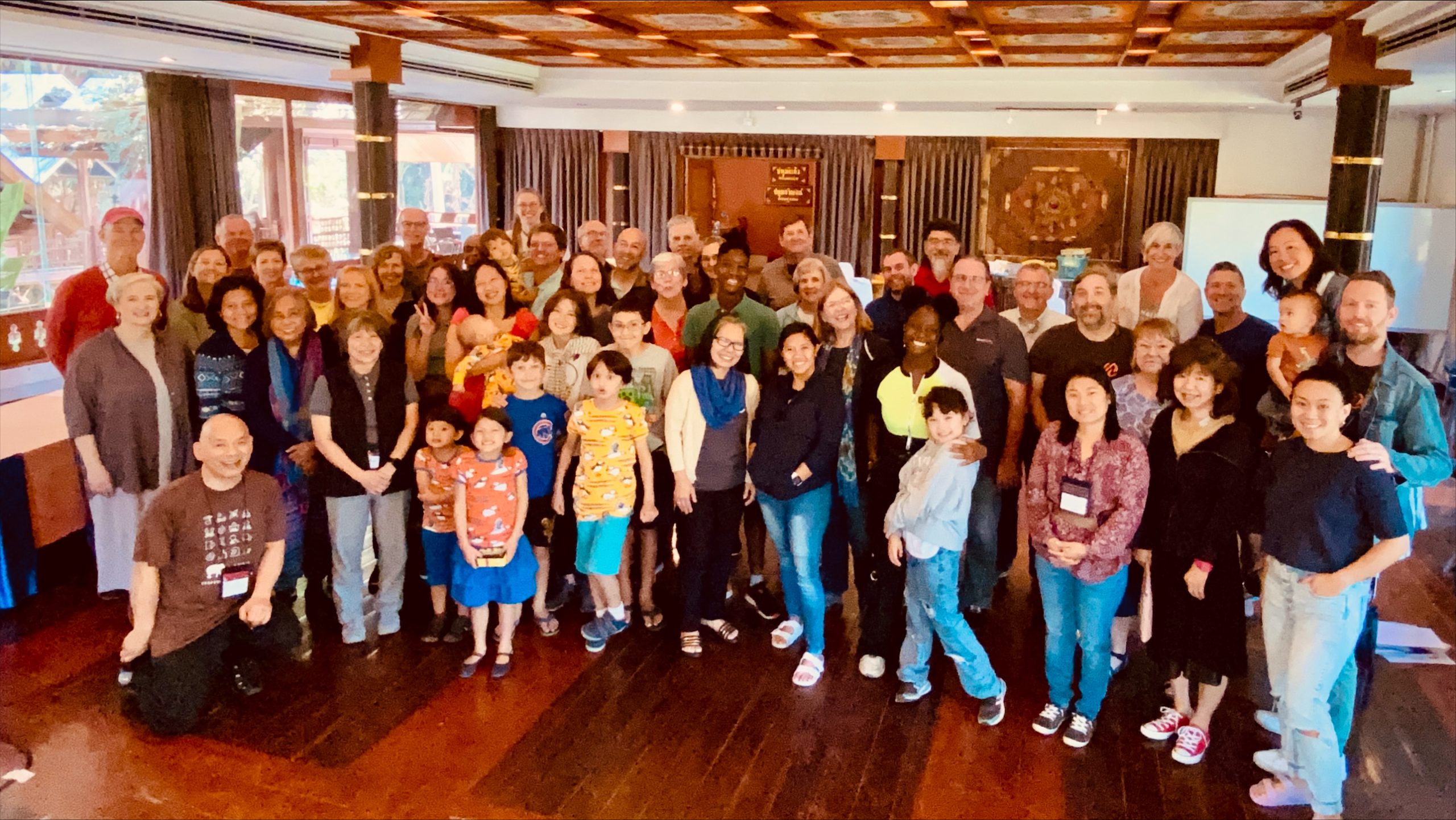
Remember not the former things, nor consider the things of old. Behold, I am doing a new thing; now it springs forth, do you not perceive it? I will make a way in the wilderness and rivers in the desert. (Isaiah 43:19)
From January 11-15, 2023, we helped lead a regional retreat for our colleagues in S.E. Asia. American Baptists have a rich heritage in this part of the world. Therefore, we felt it important to share some of the historical context that undergirds this ministry today.
Then: A Beginning Story
The history of American Baptist mission work in South East Asia was seeded by Adoniram and Ann Judson. Adoniram and Ann were appointed to serve in Burma in 1812 by the American Baptist Foreign Mission Society. They were 25 and 24 years old, respectively. Travel to Burma took 8-12 months depending on the ship and the route. The Judson learned Burmese over three years through cultural immersion (there were no language schools), and they were the only Caucasian people in the area. They ministered for a decade before seeing any converts to Christianity.
During the Anglo-Burmese war of 1824, Adoniram was imprisoned and tortured for 17 months. Ann was left alone to not only care for their baby, but also to advocate with local officials for the freedom of her husband. At that time, she was the only white woman in the country. During Adoniram’s imprisonment, Ann wrote stories of life on the mission field and the struggles she faced. She wrote about the cultural context of the Burmese women sharing about topics such as child marriages and female infanticide. She continued their work of translating the entire Bible into Burmese. She is credited with translating the books of Daniel and Jonah into Burmese, and later the book of Matthew into Thai. The stress and trauma she experienced during this time took a toll on Ann’s health. Two years after Adoniram’s release, Ann died of smallpox. Both their children died in infancy.
In 1827, Adoniram was the first missionary to make contact with the Karen people. He found them amazingly receptive to the Gospel, and his ministry expanded to include this tribal group. (Today, Karen Christians still honor Adoniram as their “spiritual father.”) In 1834, he finished his translation of the Bible into Burmese – a labor of love that took 24 years.
Adoniram married his second wife Sarah in 1835, with whom he had 8 children (only 5 survived). Ten years later she died on a voyage back to the United States. While in the states (his first trip back in 33 years), Adoniram raised support, remarried a 3rd time to Emily Chubbuck, and headed back to Burma. Adoniram died in 1850 having served four decades. His efforts, and the efforts of Ann, Sarah, and Emily, laid the foundation for Baptist ministry in S.E. Asia.
Mission life in the 1800s reminds us how different life was 200 years ago. Those who were sent did not expect to come back. For this very reason, their belongings were shipped with them in a casket! These men and women determined to be committed to a people and a geographic location until their last breath. They rarely came home to visit due to the lengthy and expensive voyage. Intense cultural isolation was a constant companion. There were no language schools. With few medical resources, life expectancy was short if one fell seriously ill. No mission teams came to visit and encourage. There was no health insurance, retirement fund, or ministry fund allocation. And, with all communication reliant on ships, it could be months, if not years, before financial support arrived via letter. Each missionary was on his/her own to grapple with physical, emotional, spiritual, mental, and vocational challenges. The good news? Their sacrifices were not in vain.
Now: A New Thing
The mission endeavors of Adoniram, Ann, Sarah and Emily began a legacy that carries through to the present. Today in S.E. Asia, International Ministries has forty global servants. Their ministries are networked through Thailand, Myanmar, Japan, Laos, the Philippines, Malaysia, Vietnam, New Zealand, and Bangladesh. They partner with local leaders in the areas of economic development, discipleship, healthcare, peace & justice, theological education, anti-trafficking, the needs of tribal women & children, evangelism & new church development, vocational training, and immigration & refugees. Mission work in this part of the world has expanded and multiplied exponentially in the last 211 years! God is definitely doing new things!
Member care, thankfully, also looks radically different today. In addition to practical care provided through a consistent monthly living allowance, health insurance, retirement benefits, and pre-assignment cross-cultural training, global servants also have direct access to emotional, mental, and spiritual care. This is provided through their Missionary Support Teams, Area Directors, the Global Coordinator of Missionary Kid & Family Care, and our position as the Global Coordinators of Spiritual Care. These member care efforts seek to nourish and sustain a mission community of health. Care for missionaries has come a long way since 1812.
Part of our unique ministry is to walk with global servants through significant times of transformation, transition, grief & loss, celebration & joy. We provide this through one-on-one encounters as well as through facilitating groups that nurture & deepen community.
We have walked beside our colleagues through many of the same situations the Judsons had to endure alone.
Research shows that mentors and building community is critical to spiritual resilience. A global servant who can rely on others to surround, support, and encourage him or her through tough times has greater odds of mental, emotional, physical, and spiritual survival. It is sacred, holy ground. We are humbled and honored to serve in this capacity.
Thank you for your prayers and financial support for the ministry of spiritual care to global servants!
David & Joyce